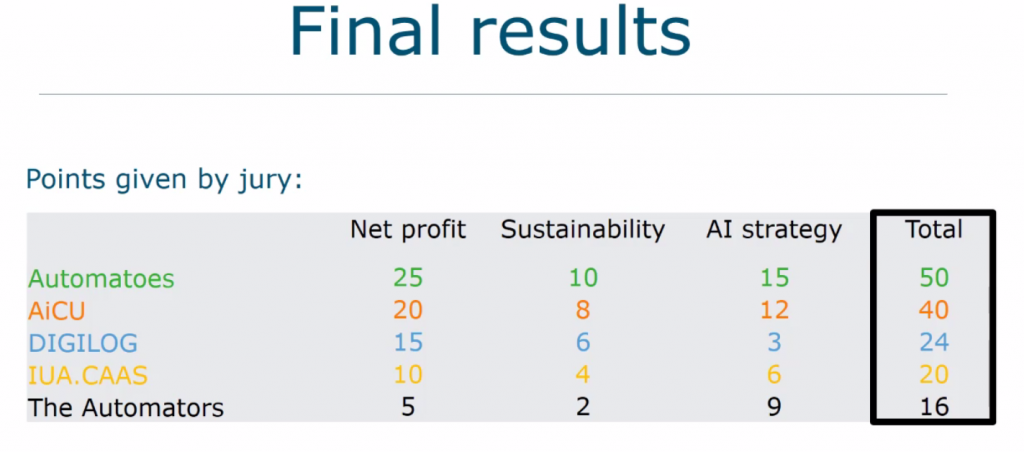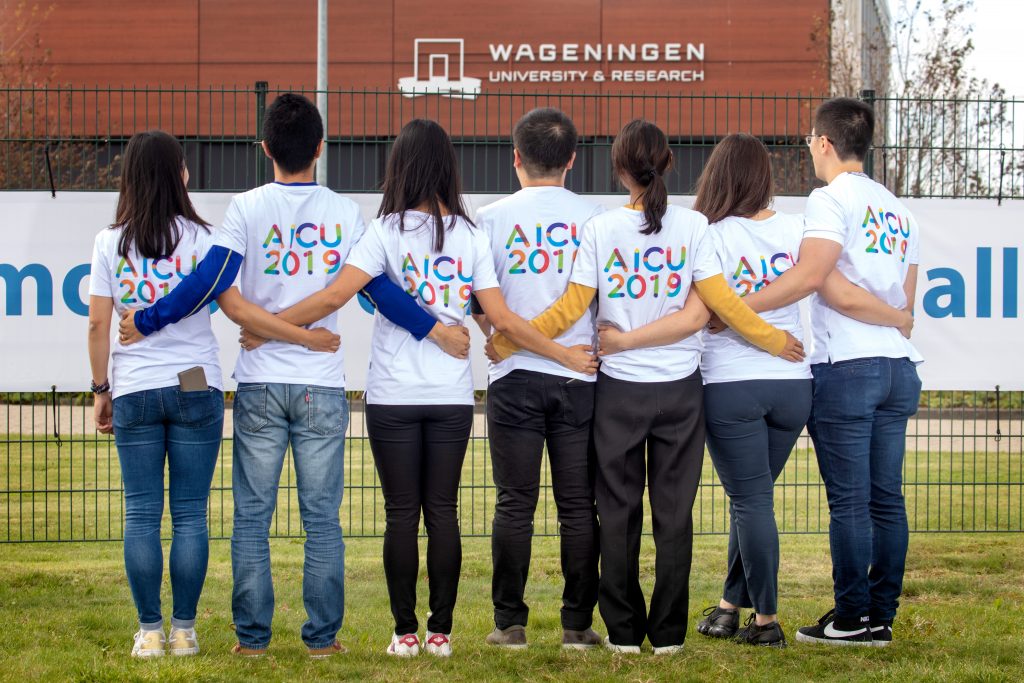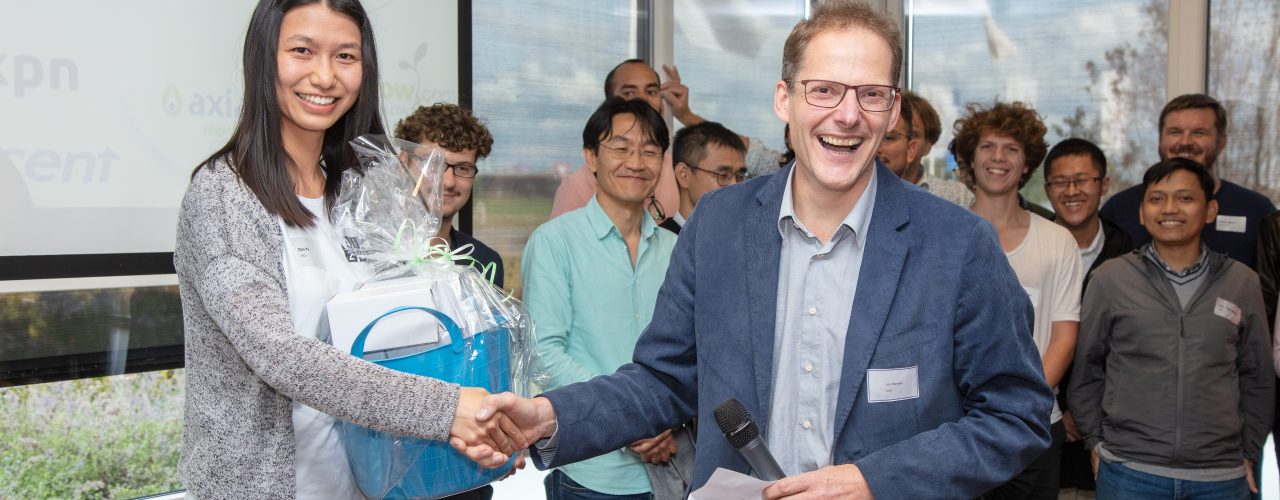Our colleague Zao Ye, participated in the 2019/2020 edition of the Autonomous Greenhouse International Challenge. Zao has successfully led the AiCU team, consisting of young professionals and researchers from different organizations and industries, into the finals and ranked 2nd out of 21 entries.
The goal of the challenge is to grow over a 6-month period remotely controlled cherry tomato crops, supported by measured values of greenhouse climate and crop development. Teams will be able to extract necessary data from the greenhouse through sensors, cameras and measured values of crop development and climate and couple it to their own ICT/models/machine learning algorithms in order to decide on the control settings for the next day/period. They will send the control settings back to the system (the greenhouse climate computer) in order to steer the actuators automatically or send instructions for crop handling in order to reach the goal.

Final results are evaluated on the following criteria: 50% net profit (income minus all cost, including material, labor and energy etc.), 20% sustainability (energy using efficiency) and 30% AI strategy.
The main experience from the previous 2018 challenge is the importance of plant feedback. To further improve the results of last year’s challenge, the team added plant weight sensors, sap flow and stem diameter sensors, which can provide real-time feedback on plant growth.
Practical AI algorithms require a large amount of historical data. However, conventional agriculture does not have such data with a unified structure and storage method. So apart from the sensors, the team also developed the AiCU MissionControl software, which can integrate sensor data from different manufacturers and different interfaces. This software is a platform with centralized visualization and algorithm development.
Zao Ye:” We think the autonomous greenhouse concept will not only serve areas that are already familiar with high tech horticulture. Our approach can help growers in any place of the world, to improve yield and quality with less energy consumption. Furthermore, experts don’t need to be physically on site, which makes the exchange of know-how and experience much more efficient. This challenge has been a great experience and we look forward to participate in the next edition.


